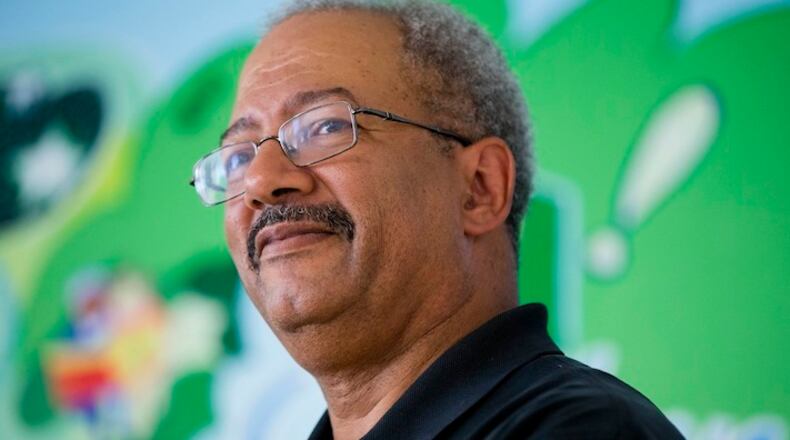In the year of Donald Trump and Bernie Sanders, when a huge chunk of each party's voters have revolted against establishment figures, it took until Tuesday to send a congressional incumbent packing.
It wasn't any of the three powerful House committee chairmen who faced strong primary challenges from the right. Kevin Brady, R-Texas, of Ways and Means and Pete Sessions, R-Texas, of Rules both fended off challenges in March, and Bill Schuster, R-Pa., of Transportation and Infrastructure overcame questions about his personal relationship with an airline lobbyist to win a narrow victory Tuesday.
The lawmaker cast into sudden retirement was Rep. Chaka Fattah, D-Pa., the 11-term veteran from West Philadelphia, who lost to state Rep. Dwight Evans in the Democratic primary for Pennsylvania's 2nd Congressional District.
The loss caps a remarkable turnaround for Fattah, 59, who rose through the ranks of Philadelphia political machine and came to Congress in 1995 as a reformer and a fresh face in a Democratic conference that had just been laid low in the 1994 GOP wave. He married Renee Chenault, a popular Philadelphia TV news anchor and tended his political garden carefully, keeping an eye on the mayor's office. Though he ran for mayor and lost in 2007, he remained a fixture in Philadelphia politics.
Two years ago, Fattah had no primary challenger and won 88 percent of the vote against his Republican opponent. On Tuesday, he fell more than 13,000 votes short of Evans, according to unofficial returns.
The difference is simple: a federal indictment.
It had been known for years that federal investigators were circling Fattah, probing allegations of fundraising misdeeds connected to his 2007 run for Philadelphia mayor -- a probe that later expanded to whether he used his position as a powerful member of the House Appropriations Committee to funnel government funds to pay off his campaign debts though nonprofits Fattah controlled.
By 2014, the investigation had implicated Fattah's son and some of his closest political advisers, but Fattah himself had not been charged. That changed in July, when a federal grand jury handed down a 29-count indictment for bribery, bank fraud and other corruption charges. In November, his son Chaka Jr., was convicted in an unrelated $1.1 million bank fraud case and was later sentenced to five years in prison.
Fattah vowed to fight: "As an elected official I've never been involved in any illegal activity or misappropriation of funds," he told reporters on the day of the indictment.
And fight he has: He is set to stand trial on those charges less than a month from now.
But whether or not Fattah is convicted, the indictment inflicted fatal political damage. He found it difficult to raise money after the party establishment all but abandoned him. Pennsylvania Gov. Tom Wolf, Philadelphia Mayor Jim Kenney and Ed Rendell, who formerly held both of those jobs, all endorsed Evans. In the months following the indictment, Evans raised and spent more than 10 times what Fattah did.
"There were forces arrayed against us tonight of very powerful and influential people," Fattah told supporters Tuesday, according to a Philadelphia Inquirer report.
Compare that to Congress's other primary-embattled incumbents: Brady, Sessions and Schuster all were able to overwhelm their primary foes with fundraising, and, in some cases, independent Super PAC spending. No Super PACs were coming to Chaka Fattah's aid.
Evans, 61, is widely expected to win in November in the overwhelmingly Democratic district, which includes Center City, West and part of North Philadelphia, as well as some of the city's affluent northwest suburbs.
About the Author
Keep Reading
The Latest
Featured



